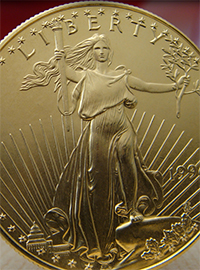| Economic Freedom Index: U.S. Stabilizes In Trump's First Year |
 |
|
By Timothy H. Lee
Thursday, February 08 2018 |
For eight long years, the United States suffered continual decline in economic freedom under Barack Obama. Anyone seeking causation for the unprecedented economic malaise under his watch need look no further than that measure. At the beginning of 2009, when Obama entered the White House, the U.S. ranked sixth in the Heritage Foundation's annual Index of Economic Freedom, which placed us in the "Free" category. By the time he departed, we had fallen to a record low rank of seventeenth, which reduced us to the "Mostly Free" category. The economic consequences of that progressive decline were inescapable. Since World War II, the U.S. has averaged 3.3% economic growth (measured as gross domestic product, or GDP) each year. Under Obama, however, we went a record stretch without even reaching 3%. That alone merits an "F" grade for Obama's economic stewardship. In addition, we witnessed wage stagnation, and labor participation rates plummeted to rates unseen since before women fully entered the workforce as too many Americans simply dropped out of the labor force. Throughout that period, we also experienced record deficits exceeding $1 trillion for the first time in our nation's history, our accumulated debt doubled and federal bureaucratic regulations upon our market economy reached record levels. Fortunately, there's finally good news to report. In Donald Trump's first year as president, we've stabilized after eight long years of decline under Obama. And just as the consequences of plummeting economic freedom under Obama were obvious, the positive consequences of greater economic freedom under Trump have been equally obvious. Here's how the Index works. Since 1995, the Index annually ranks each nation's level of economic freedom, defined as the degree to which "governments allow labor, capital, and goods to move freely, and refrain from coercion or constraint of liberty beyond the extent necessary to protect and maintain liberty itself." To determine each nation's economic freedom, the Index measures twelve factors of equal weight, organized within the following four broader categories: 1. Rule of Law: Property Rights, Government Integrity and Judicial Effectiveness; In turn, each of those twelve economic freedoms is evaluated on a 0 to 100 scale, after which each nation's overall score is aggregated and then divided by twelve. So what difference does greater economic freedom make? As the Index establishes, a nation's prosperity and its degree of economic freedom are demonstrably correlated: [C]countries moving up the economic freedom scale show increasingly high levels of average income. Economies rated "free" or "mostly free" in the 2018 Index enjoy incomes that are over twice the average levels in all other countries and more than five times higher than the incomes of "repressed" countries... The findings of the 2018 Index evince yet again the strongly positive linkages between economic freedom and various dimensions of human and socioeconomic development. The intricate, multidimensional, and nonlinear links highlight why economic freedom is unmatched both in finding solutions to human problems and advancing well-being. No other alternatives that have been tried have come close to free-market capitalism based on economic freedom in terms of providing broader-based prosperity and making a greater number of innovative solutions available to the most people most effectively. With that key correlation between prosperity and economic freedom in mind, there's positive news to report as the first year of Trump's presidency concludes: The United States economic freedom score is 75.7, making its economy the 18th freest in the 2018 Index. Its overall score has increased 0.6 point, with a significant improvement in financial freedom more than offsetting a lower score for the government integrity indicator... President Donald Trump was elected in November 2016, promising a sharp break with his predecessor's regulatory, tax, and trade policies. The Republican Party holds a slim majority in Congress but in 2017 was unable to fulfill promises to dismantle major legislation such as the Affordable Care Act, although it did enact major reforms to the tax code at the end of the year. Thus, although it's early in the Trump Administration and reversing the Obama decline remains far from complete, the Index strikes an optimistic chord: While the U.S.'s economic freedom ranking has dropped due to comparatively better improvements in other countries, the increase in its overall score would seem to indicate that the decade-long decline in America's economic freedom may have been arrested. There are signs of renewed labor market dynamism and increased growth, and major regulatory and tax reforms are spurring business confidence and investment. That largely explains why the U.S. economy has grown at approximately 3% during the first three full quarters of Trump's tenure, whereas we never once reached that level in any year of Obama's term. And with continuing deregulation and tax reform signed, economists now predict 4% and even 5% growth for the first quarter of 2018. Employment, business confidence and markets have also accelerated over the past year for the same reasons. After eight long years of malaise, that was a long time coming. Now it's just a matter of continuing the improvement and not taking our collective eye off the ball.
|
Related Articles : |
























